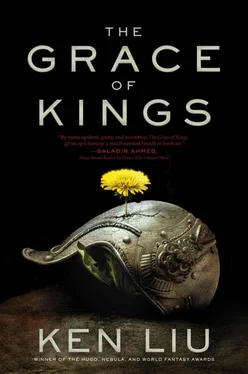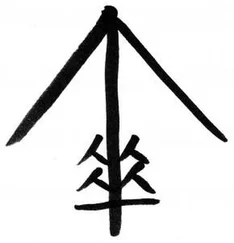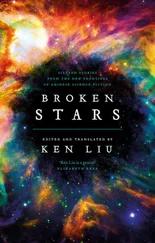Up on the dais, at the table of honor next to Kuni and his wives, sat Féso Garu, Kuni’s father; Kado and Tete Garu, his brother and sister-in-law; and Gilo and Lu Matiza, Jia’s parents. The smiles on the faces of the Matizas were a bit strained, but Kuni had been in a forgiving mood, and he hadn’t given them a hard time when he came to Zudi. (However, at the beginning of the banquet, he had banged on an empty pot loudly and smiled as Tete blushed furiously.)
Jia kept on raising her cup to Gin Mazoti, Luan Zya, and Cogo Yelu. These three were the most important people in the new Dasu Empire. She seemed to be trying to make up for lost time as she had been absent for years while Risana was here to win their favor.
Soto Zyndu looked at her, and then at Risana, who sat quietly by Kuni, content with his attention alone. Kuni had announced before the banquet that since Risana’s son, the young prince known as Hudo- tika , had also reached the age of reason, he would be formally named Phyro, meaning “Pearl in the Palm.”
Only a few who had studied the Ano Classics in depth understood the obscure allusion. The Cocru patriot and poet Lurusén had once written a poem celebrating the birth of a new prince:
A son who carries on the legacy of his father
Is more precious than a pearl in the palm of a great king.
Prince Timu’s name, Gentle Ruler, had been an allusion to a son’s love for his mother, but Phyro’s name seemed to indicate Kuni’s thoughts on succession. No wonder Jia’s face had been stony when the name was announced, though Risana had appeared completely oblivious.
From time to time, the sound of children playing and laughing in the courtyard drifted into the banquet hall.
Soto sighed. Risana was in trouble, and she didn’t even know it. Risana thought Kuni’s favor alone was enough, but she did not understand that the politics among the wives and children of the emperor would be far more deadly and intricate.

Risana played the coconut lute, and Kuni, drunk and wistful, put down his kunikin and began to sing:
The wind blows, and clouds race across the sky.
My power sways within the Four Placid Seas.
Now I’m home, my friends and loved ones nearby.
How brief is my respite, how rare this ease?
Outside, the air was filled with dandelion seeds, drifting like snow in summer.
“I heard you declined the titles of Imperial Scholar and Grand Secretary,” said Cogo, as he sat down next to Luan. “So what are you going to do?”
“Oh, I haven’t decided yet,” Luan said. “Maybe I’ll try adapting the machinery in the mechanical crubens into iron horses and oxen; traders and farmers would like that. Maybe I’ll travel the Islands in a balloon and make better maps. Maybe I’ll go back into the mountains to perfect my stringless kite.”
“But you’ve made up your mind not to stay around the court?”
“There is a time to rise with the cruben, and a time to withdraw.”
Cogo smiled and said no more.
Luan looked over at Gin Mazoti. She looked back, smiled, and raised her cup. Luan saw only trust in her eyes, but he could not help but feel a chill as he listened to Kuni’s song. The hunt is over .
Luan sighed, raised his cup in turn, and drank.
cruben : a scaled whale with a single horn protruding from its head; symbol of imperial power.
cüpa : a game played with black and white stones on a grid.
dyran : a flying fish, symbol of femininity and sign of good fortune. It is covered by rainbow-colored scales and has a sharp beak.
géüpa : an informal sitting position where the legs are crossed and folded under the body, with each foot tucked under the opposite thigh.
jiri : a woman’s bow where the hands are crossed in front of the chest in a gesture of respect.
kunikin : a large, three-legged drinking vessel.
Mingén falcon : a species of extraordinarily large falcon native to the island of Rui.
mipa rari : a formal kneeling position where the back is kept straight and weight is evenly distributed between the knees and toes.
ogé : drops of sweat.
pawi : animal aspects of the gods of Dara.
Rénga : honorific used to address the emperor.
thakrido : an extremely informal sitting position where one’s legs are stretched out in front; used only with intimates or social inferiors.
tunoa : grapes.
— tika : suffix expressing endearment among family members.
Mata Zyndu’s poem is an adaptation of the late Tang Dynasty “Ode to Chrysanthemum” by Huang Chao (“Huang” is the surname). Huang’s story does not have much to do with this book, but it happens to also feature flowers and politics, and so I will tell it briefly here.
Huang, the son of a wealthy salt-smuggling family, wrote his ode in Chang An, capital of Tang Dynasty China, after he failed to place in the Imperial Examinations. The Tang Court favored the peony; praising the chrysanthemum was a political act.
In AD 875, Huang began a rebellion against the corrupt Tang Court, which lived in luxury while the populace suffered under natural disasters and misrule. Five years later, his forces managed to capture Chang An. Surviving historical records indicate that Huang’s men slaughtered and preyed upon civilians indiscriminately. Ultimately, his rebellion — though it would accelerate the fall of the Tang Dynasty — failed, and he was betrayed by his followers and killed.
Huang’s poem has always been controversial, as is his place in history — in some ways, Kuni and his advisers were too optimistic, as the judgment of history may not be final even a thousand years later.
This novel benefitted enormously from the critiques and suggestions of my beta-readers: Anatoly Belilovsky, Marty Bonus, Dario Ciriello, Anaea Lay, John P. Murphy, Erica Naone, Emma Osborne, Cindy Pon, Kenneth Schneyer, Alex Shvartsman, and Louis West. I can’t thank them enough. Every author should be so lucky as to have such insightful and forgiving friends.
I’m also grateful to my editor, Joe Monti, who believed in this book and helped me shape it to be closer to my vision through a multiyear process, and my agent, Russ Galen, who pried the manuscript out of my hands and found it a great publisher (and dealt with my worries and neurotic questions with unfailing patience). Everyone at Saga Press and Simon & Schuster has been a pleasure to work with, and their patience and good cheer in steering a new author through the book-launch process are very much appreciated.
Finally, the greatest share of credit must go to my wife, Lisa, who came up with the idea for this book with me, read and commented on numerous drafts, and supported me through the ups and downs of the writing process at great personal sacrifice. I hope someday my daughters will be able to read and enjoy this book that consumed so much of their father’s time when they were babies.
Ken Liu’s fiction has appeared in the Magazine of Fantasy & Science Fiction, Asimov’s Science Fiction, Analog Science Fiction and Fact, Strange Horizons, Nature, Lightspeed , and Clarkesworld , among other places. He is a multiple winner of the Hugo Award and is also a recipient of the Nebula and World Fantasy Awards. Occassionally, he translates Chinese fiction into English. He may be found online at kenliu.name. Ken lives with his family near Boston.
Читать дальше













